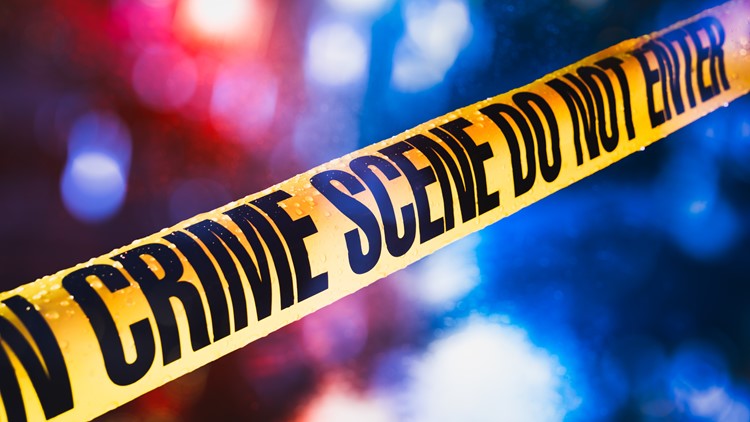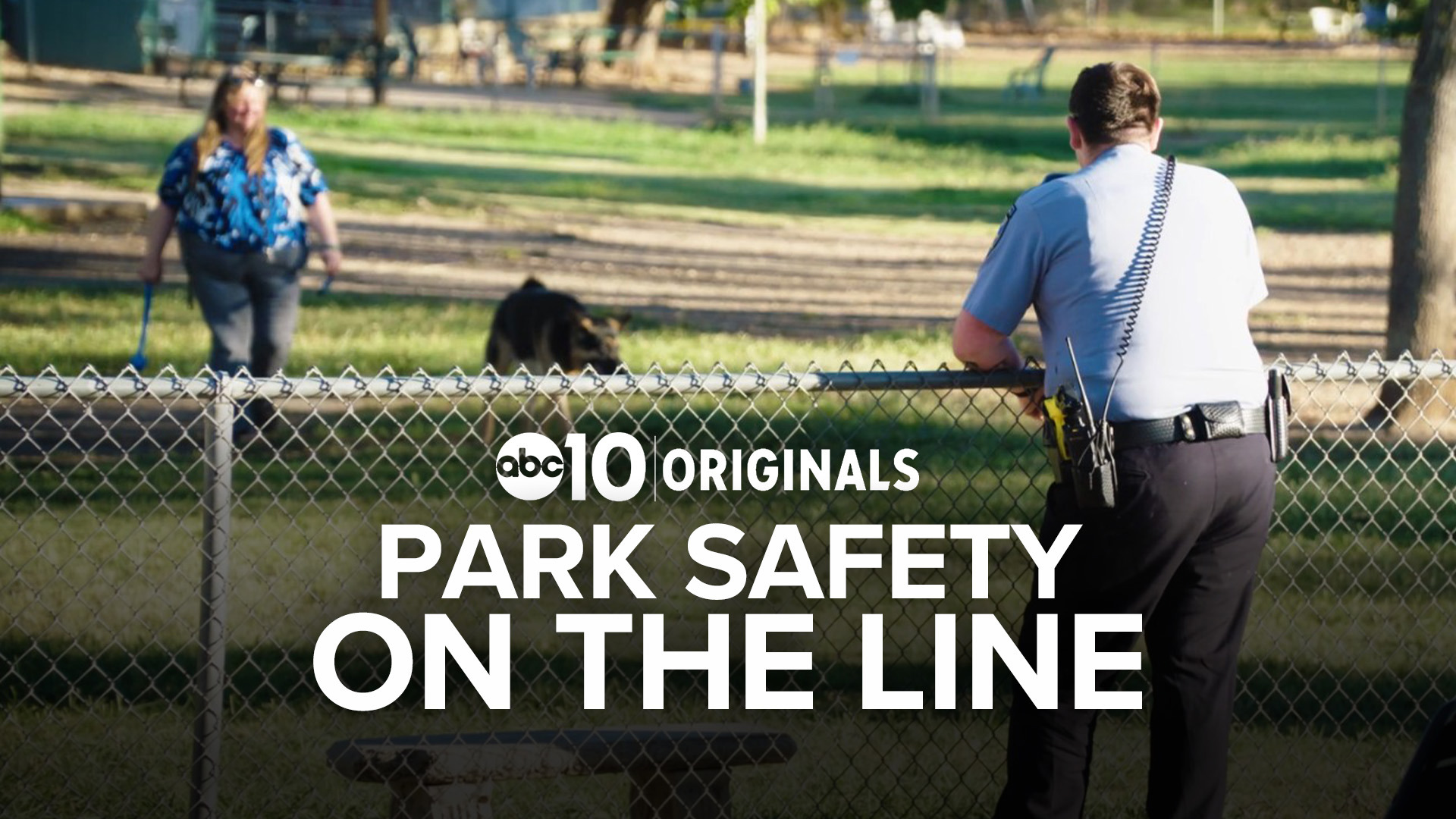In a dark corner of the web, lives a website where murder and commerce come together. Murderauction.com is an online auction, where the site's thousands of users buy and sell "murderabilia" – memorabilia related to serial killers and true crime. It's like eBay, only a winning bid might get you a Son of Sam Christmas card instead of a bag of golf clubs.
The site is run by Central California man William Harder. He's collected murderabilia for years and logs thousands of miles in his car visiting serial killers and other convicts from Ohio's to California's death row.
Harder is a controversial figure -- victims' rights groups say his business crosses the line. All killers have victims; some have a lot.
A recorded jail conversation between two convicted killers and a former jail psychologist last year put Harder on the California Department of Corrections' radar. With a search warrant for Harder's Facebook page, investigators expected to find evidence he was involved in a plot of murder and intimidation with two convicted serial killers serving life sentences.
Gregory Miley and James Munro were accomplices of the Freeway Killer William Bonin, who was executed for the rape and murder of 14 boys and young men in Los Angeles between 1979 and 1980. When Munro and Miley said they intended to resume Bonin's work if they ever paroled, investigators started looking for someone on the outside who might be involved. They began with William Harder.
A macabre hobby
You could say Harder was hooked on murder when he got his first letter from Richard Ramirez, Los Angeles' Night Stalker. Harder was in his early 20s and fighting depression. Up late one night surfing the web, Harder said he stumbled on a website featuring Ramirez's artwork. On a whim, he decided to write Ramirez, and then Ramirez wrote back.
"I was very new to the Internet mind you," Harder said. "I had to just type in Richard Ramirez in some search engine and hit enter. I went through I don't know how many thousands of pages, until I found one that actually had his prison number. I wrote him and he wrote back. I got my first letter on, I think, November 15, 2000."
Harder never slowed down, collecting murderabilia from some of the most notorious killers in American history, from the Night Stalker to Charles Manson. He's got boxes of it in his office, but his most prized possessions are proudly displayed on the walls of his home, like a painting sent from Charles Manson. Harder said he understands his hobby is a far cry from collecting stamps.
"My mother loves me, I'm her son -- she wishes I collected baseball cards," Harder said. "My father, he loves me -- he wishes I collected anything else. They love me, they support me; they think it's unusual but nobody in my family has disowned me."
Harder has logged thousands of miles visiting more than 70 convicted criminals, mostly murderers and serial killers. He's not just a collector, Harder said he's forged bonds with men society considers monsters. He's also watched them die. When Michael Yowell, convicted for the murder of his parents and grandmother in Texas, was executed, Harder was there for support.
The website's not a cash cow, but it generates enough money to fund Harder's macabre hobby. When eBay banned the sale of factual crime items, Harder said he saw a chance to build something for true crime and murderabilia collectors. He became a silent partner on MurderAuction.com in 2008, then bought the website in 2009. Although the website sells relics, letters and artwork of violent crimes and violent men, Harder insists he doesn't condone violence.
"Well, the old saying, 'love the sinner, hate the sin,'" Harder said. "I don't condone violence, I don't condone crime. I don't eat meat, I don't believe in violence against animals. I would not consider myself a violent person. As far as individuals who commit crimes, a lot of the guys I visit, its 30 years later, they've changed. Many of them expressed genuine remorse. A lot of them have never had a friend in the world, and I've found a little niche where I can be someone's friend who's never really had one."
Banned in Texas
Many people, especially the families of victims, are repulsed by Harder and the handful of other major murderabilia dealers around the country. When a photo of convicted Texas murderer and white supremacist John King ended up on Harder's website, a lot of people took notice.
King was convicted in the brutal killing of James Byrd Jr., an African American man who was chained to a pickup truck and dragged for miles. When King's photo ended up on MurderAuction.com, Byrd's sister spoke to Houston television station KHOU.
"That's unbelievable, unacceptable to me," Byrd's sister Louvon Harris said. "And as a victim of a hate crime, I think that we've been slapped in the face."
Texas banned Harder from its prisons after the incident, claiming Harder was paying inmates directly for memorabilia he could sell on his website. Officials accused Harder of helping inmates profit from their crimes, which is illegal.
Although Harder said he does occasionally sent inmates money, it's just to help them get food or necessities in prison. He's never paid an inmate for memorabilia, Harder said. He also said it's hypocritical for people to single him out.
"You've got networks doing it, book companies doing it," Harder said. "Everybody's making money off crime, including the judges, the lawyers, the cops, even you guys today. You're not here on your own accord; you're not here for fun. You're getting paid. Everybody's making money, but if I try to make a couple of bucks. God forbid I make $20 off a letter."
The warrant
In 2014, Harder became the focus of a California Department of Corrections and Rehabilitation investigation into an alleged murder plot by James Munro and Gregory Miley. Harder served two years in prison for a drug conviction in his early 20s, but it was the first time his business drew the attention of criminal investigators. It began with a recorded jail phone call.
Dr. Vonda Pelto is a former Los Angeles County psychologist. When the Freeway Killer and his accomplices were arrested, the task of keeping them from committing suicide fell on Pelto. She met with the serial killers every day, and they eventually confided in her. Bonin was executed years ago, but Munro and Miley have stayed in touch with Pelto through the years. Pelto wrote about them in her book "Without Remorse" and has another book coming out that focuses on the five Freeway Killers. In January 2014, Pelto was speaking with Munro and Miley on a recorded prison phone line, when Munro made a shocking admission.
"[Munro] said that he planned to carry on Bonin's work," Pelto said. "And I said, 'what do you mean?' And [Munro] said 'he had a list of people that he wanted to kill.'"
Pelto said she kept pressing Munro for details, knowing they were speaking on a recorded phone line. Pelto said Munro told her an accomplice on the outside had already bought a van similar to Bonin's and was helping track potential victims. Miley and Munro both had upcoming parole hearings, and wanted to kill again if they were granted parole.
But authorities listened to the call and began investigating who the accomplice could be.
According to a search warrant obtained by News10, investigators also believed an accomplice was using a fictitious Facebook account to intimidate families of Bonin's victims from testifying at the upcoming parole hearing. Investigators soon realized Harder spoke to both Miley and Munro several times, and served a search warrant on his Facebook page, along with the fictitious account someone was allegedly using to intimidate victims' families.
But the search must have come up empty, because no criminal charges were filed against Harder. Officials for CDCR now say the investigation is closed and they have no grounds to ban Harder from California prisons like Texas did.
That doesn't mean they like what Harder does.
"I personally find it very disturbing that anyone would try to profit from someone's murder," said Deborah Hoffman, Assistant Secretary of Communications for CDCR, in a written statement. "The rights of victims are a top priority for CDCR. We have conducted an investigation and no charges were filed against Mr. Harder. At this time, CDCR does not have grounds to ban Mr. Harder from our prisons."
Harder said he's glad CDCR won't attempt to ban him from visiting prisons. He's currently fighting the Texas ban and has other websites in the works, including a social media site where true crime enthusiasts can post without feeling like they're being judged. He has no plans to stop collecting or to shut down the website.
"We are a capitalist society," Harder said. "To tell me I can't sell something that I've collected is about as un-American as it gets. When Larry Flynt was selling the porn, specifically the interracial stuff, people didn't like it. You know they put him in prison for that, that's a joke. If you don't like it, don't buy it."



